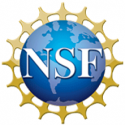Dr. Dimitris Papamichail, Assistant Professor of Computer Science, has been awarded a research grant from the National Science Foundation’s Division of Computing and Communication Foundations (NSF-CCF) core program.
 Dr. Papamichail’s research focuses on computational design of synthetic genes with enhanced properties. Synthetic Biology moves beyond conventional genetic manipulation to construct novel biological components which do not originate in nature. There exists though a big gap of knowledge between genomic sequence and function. To enhance understanding of gene expression, researchers have constructed and evaluated libraries of gene variants, which traditionally have limited size due to synthesis costs, and random or biased composition.
Dr. Papamichail’s research focuses on computational design of synthetic genes with enhanced properties. Synthetic Biology moves beyond conventional genetic manipulation to construct novel biological components which do not originate in nature. There exists though a big gap of knowledge between genomic sequence and function. To enhance understanding of gene expression, researchers have constructed and evaluated libraries of gene variants, which traditionally have limited size due to synthesis costs, and random or biased composition.
This grant will enable exploration of the combinatorial design of synthetic gene variants to aid the construction of large scale, purposed libraries. The aim is to assay the most important sequence features which determine gene expression, while minimizing experimental cost and maximizing the exploration of the coding landscape.
Over the next two years Dr. Papamichail, with the aid of TCNJ research students, aims to develop new algorithmic results in combinatorial design of diverse gene libraries with minimized cost. TCNJ students will participate in developing both the algorithms and the software that will be used to design the next generation of large-scale synthetic construct experiments.
The research will be performed in collaboration with Dr. J. Robert Coleman, Assistant Professor of Microbiology at SUNY – Farmingdale State College. Dr. Coleman will test the computationally designed synthetic libraries in a wet-lab and evaluate the reporter gene variants. This will help determine quantitative effects of modified features on expression in a model organism (E.coli), thus validating the algorithmic designs.

